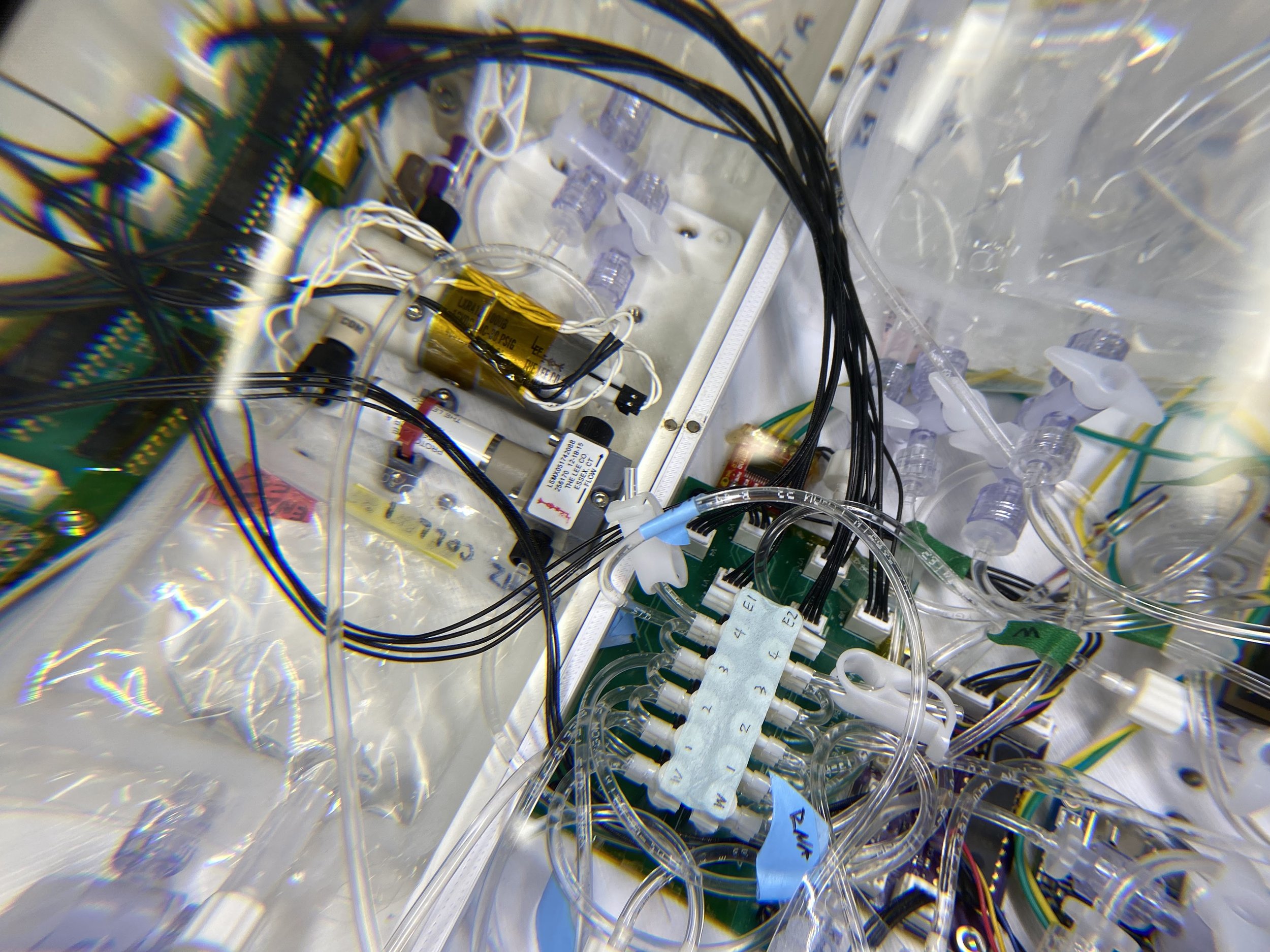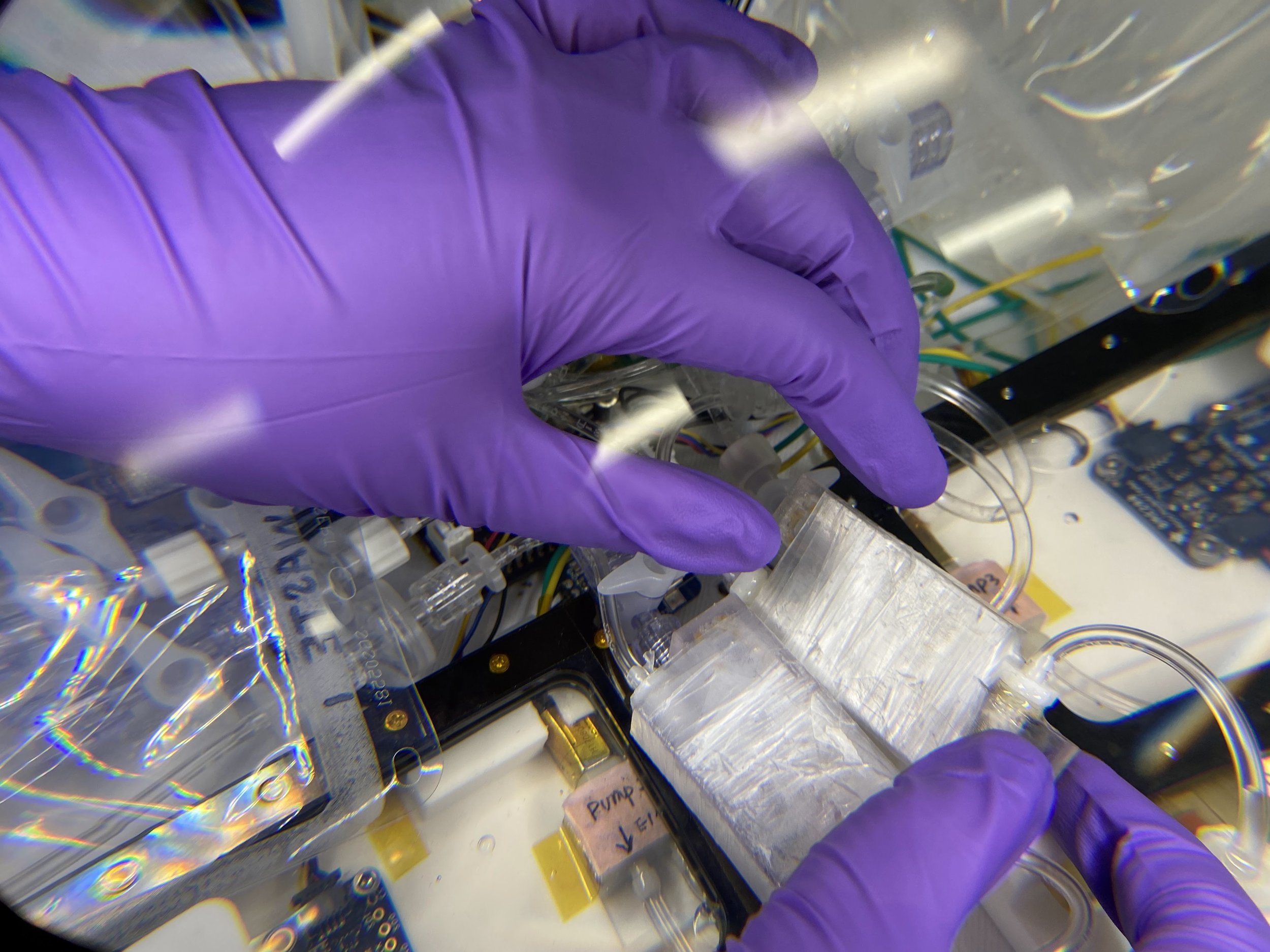Assembled MicroPET payload. Credit: MIT Media Lab, Seedlab, Harvard Medical School, NERL
An Investigation of Biodegradation of PET Plastics in Spaceflight
The MicroPET mission consists of an autonomous payload for enzymatic reactions and microbial cultivation with fully programmable serial passaging and sample preservation. The payload is a compact, modular bioreactor system allowing automatic media transfers and precise data monitoring from integrated sensors (e.g., temperature, optical density, etc.). We apply this system to study the biological upcycling of the commonly used polymer poly(ethylene terephthalate) (PET) in space in a two-step system in which PET film is enzymatically degraded and microbially upcycled.
The payload system was launched to the International Space Station aboard SpaceX CRS-26 on November 26th, 2022, out of Kennedy Space Center
Although biological cultivation in space has enormous potential to enable in-situ resource utilization in space stations, current space flight infrastructure for growing microbes without resource-intensive astronaut support is lacking. Here, we present an autonomous payload for enzymatic reactions and microbial cultivation with fully programmable serial passaging and sample preservation. The payload is a compact, modular bioreactor system allowing automatic media transfers and precise data monitoring from integrated sensors (e.g., temperature, optical density, etc.).
plastic degradation
〰️
plastic degradation 〰️
Image Credit: Allison Werner, National Renewable Energy Laboratory, XIN LIU and Pat Pataranutaporn, MIT Media Lab Space Exploration Initiative
Our Team
MIT Media Lab Space Exploration Initiative
Xin Liu, Pat Pataranutaporn, Jamie Milliken, Sean Auffinger, Ariel Ekblaw
National Renewable Energy Laboratory
Allison Werner, Erika Wagner
Harvard Medical School
Benjamin Fram, Nicholas Gauthier
Seed Health
Braden Tierney, Azza Gadir, Erin Miller, Travis Spier, Kathryn Ryan, Ara Katz, Raja Dhir
Weill Cornell Medicine
Krista A Ryon
Matthew Borgatti






